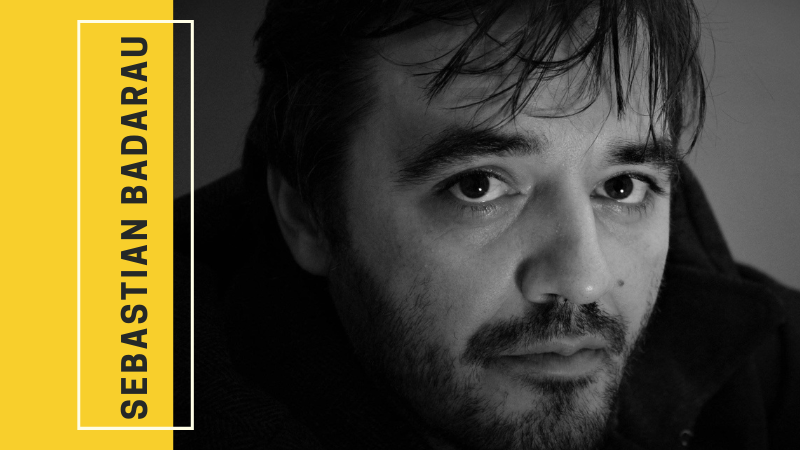Sebastian Badarau
Sebastian Badarau is a stage and screen actor with multiple credits attached to his name. As a screenwriter he is currently developing an adaptation of the novel "A State of Denmark" for the screen, along Graham Baker (Alien Nation), a process which started at RADA Studios in London. He has also authored the sci-fi novel "Tongues of Fire" about the effects of a meteor crash in a remote community in Northern California. As an actor he can be seen in shows like The Missing (BBC), De Ridder (Eyeworks Productions) or movies like "Grace of Monaco" (Canal +) or "Wilderness" (Baracoa Productions)
Your project takes a part in our festival. What is your project about?
There is actually a short scene towards the end of our movie which might provide the best answer to your question. One of the central characters turns to his friend and asks him the following question: "Why do people always find themselves in conflict with one another?" His friend thinks for a while, then answers: "I think Wung Fu, the great Chinese philosopher, summed it best. He said : 爱是一切的答案." Puzzled, our main protagonist then asks: "What on earth does that mean?" His friend replies: "I don't know either, but there is a fundamental lesson to be learned from this: if you want to get along with someone you must first and foremost speak the same language."
The UNCERTAINTY PRINCIPLE tells the story of three scientists who are on the verge of a major breakthrough in quantum mechanics only to find themselves in conflict over what the discovery actually means. I conceived the whole picture as a tele-play because I wanted it to be first and foremost about people. About their beliefs and their understanding of the world. We have this pre-notion that science is exact, and that misunderderstandings occur only outside the confinements of precise formulae and equations. But I can assure you that this is not the case. At its heart, quantum mechanics is about feelings. And when feelings show up so does chaos. Three people working in a science laboratory will share the same beliefs amongst themselves as three janitors working in the same building, or three family members in the same household. You show me a family where all three members will share the same philosophy of life, the same understanding of a situation, or even the same political aspirations. Forget three. Show me two brothers or sisters who have never disagreed on anything that is essential to the way they carry their lives.
Even more so, this is a film that shows the eternal struggle of a character in balancing the inner truth (on a quantum level) with the outside truth (the relative truth of the grander objects). If two brothers or two sisters who share different perspectives on life will not end up killing each other is because, fundamentally, they will want to be accepted by the other. No matter how strong their perceptions or inner truths may be, there will always be that longing towards the truths of the exterior world. It is essentially Hamlet that I'm describing. The reason the Danish prince hesitates on taking any action throughout the bulk of the Shakespeare play, is because he understands that once he commits his dreary acts of revenge, he will be an outcast- and for any being, the act of nonacceptance by the real world is unbearable.
Your project takes a part in our festival. What is your project about?
There is actually a short scene towards the end of our movie which might provide the best answer to your question. One of the central characters turns to his friend and asks him the following question: "Why do people always find themselves in conflict with one another?" His friend thinks for a while, then answers: "I think Wung Fu, the great Chinese philosopher, summed it best. He said : 爱是一切的答案." Puzzled, our main protagonist then asks: "What on earth does that mean?" His friend replies: "I don't know either, but there is a fundamental lesson to be learned from this: if you want to get along with someone you must first and foremost speak the same language."
The UNCERTAINTY PRINCIPLE tells the story of three scientists who are on the verge of a major breakthrough in quantum mechanics only to find themselves in conflict over what the discovery actually means. I conceived the whole picture as a tele-play because I wanted it to be first and foremost about people. About their beliefs and their understanding of the world. We have this pre-notion that science is exact, and that misunderderstandings occur only outside the confinements of precise formulae and equations. But I can assure you that this is not the case. At its heart, quantum mechanics is about feelings. And when feelings show up so does chaos. Three people working in a science laboratory will share the same beliefs amongst themselves as three janitors working in the same building, or three family members in the same household. You show me a family where all three members will share the same philosophy of life, the same understanding of a situation, or even the same political aspirations. Forget three. Show me two brothers or sisters who have never disagreed on anything that is essential to the way they carry their lives.
Even more so, this is a film that shows the eternal struggle of a character in balancing the inner truth (on a quantum level) with the outside truth (the relative truth of the grander objects). If two brothers or two sisters who share different perspectives on life will not end up killing each other is because, fundamentally, they will want to be accepted by the other. No matter how strong their perceptions or inner truths may be, there will always be that longing towards the truths of the exterior world. It is essentially Hamlet that I'm describing. The reason the Danish prince hesitates on taking any action throughout the bulk of the Shakespeare play, is because he understands that once he commits his dreary acts of revenge, he will be an outcast- and for any being, the act of nonacceptance by the real world is unbearable.
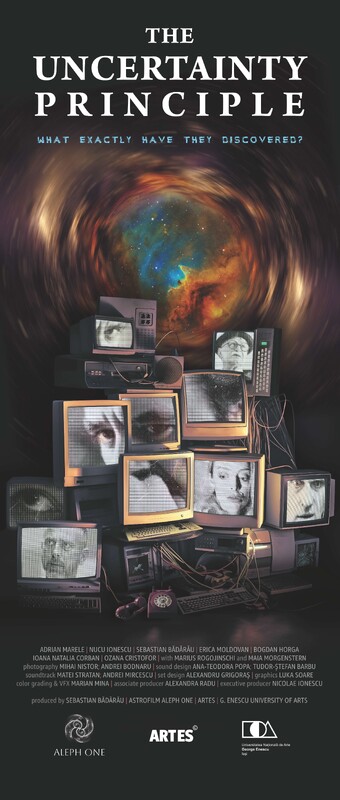
What were your requirements for actors to take a part of your film?
I have no prerequisite notions about an actor matching their part. I believe any actor could play anything. However, I have no truck with any actor refusing to pull their weight, who are not doing their utmost best for a scene to work, who will not be body and soul for the film.
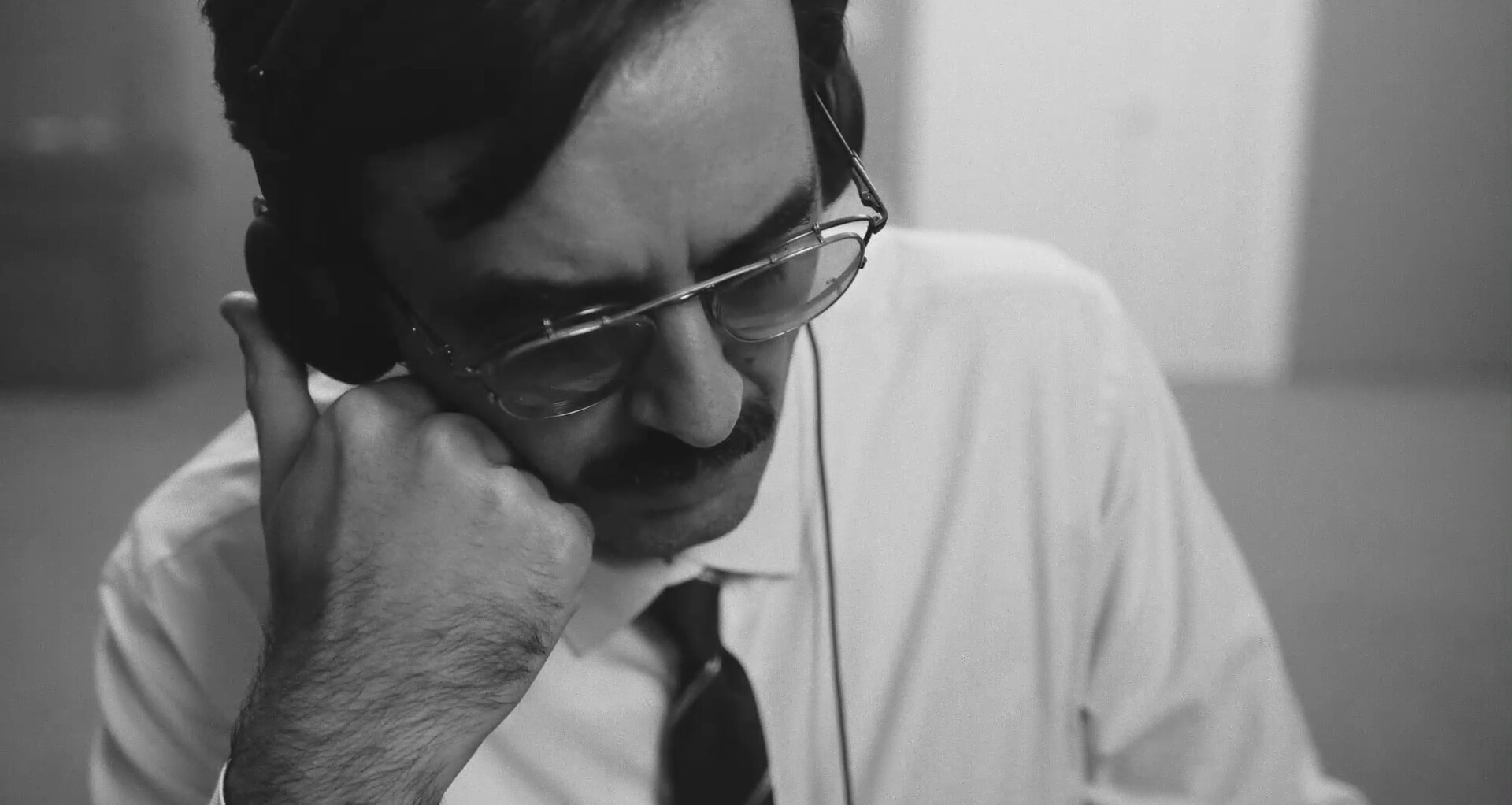
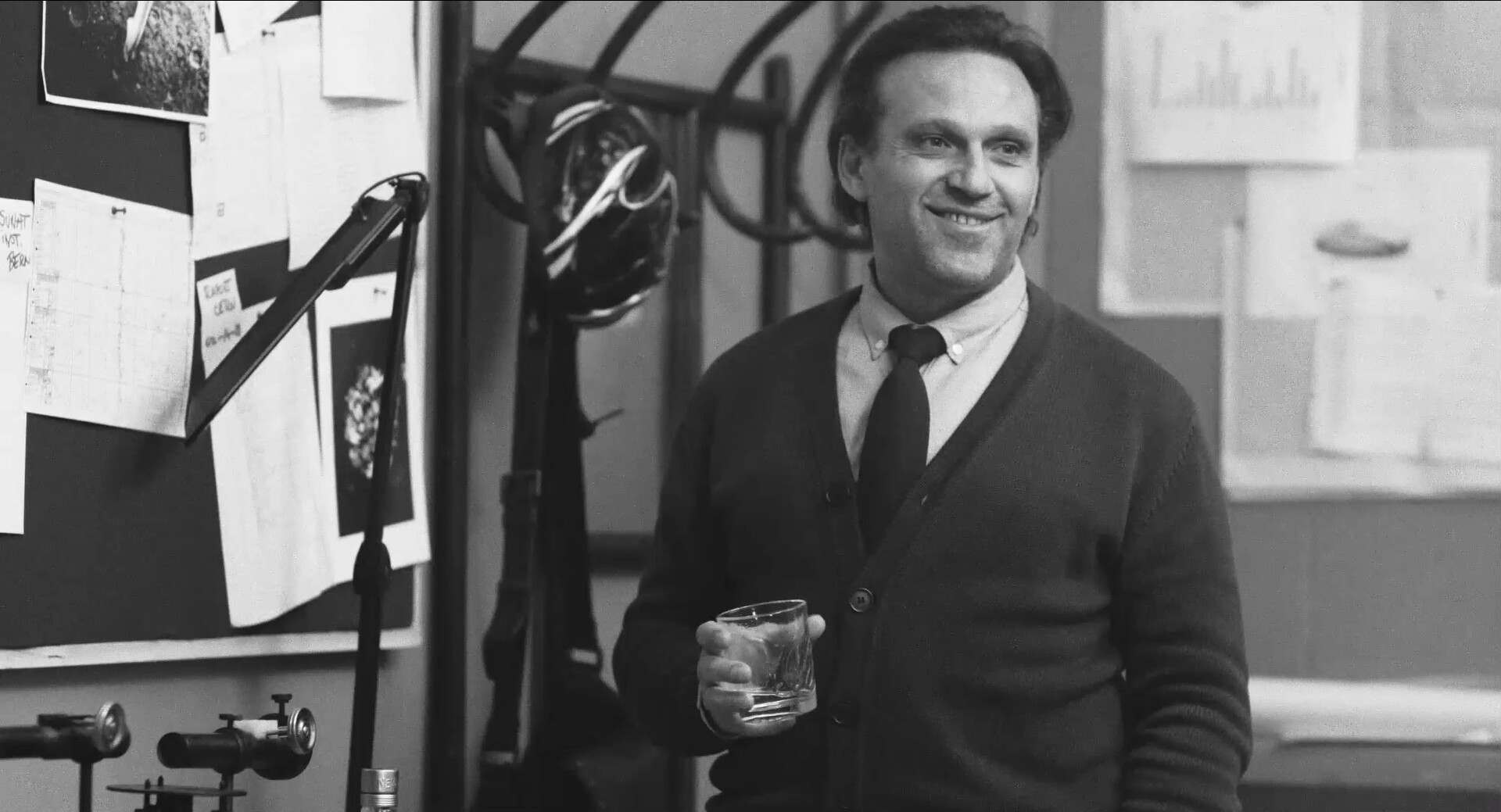
How did you communicate with the cameraman?
For this film we had to go with a certain look. There is no mention of time nor place in the film and we have set it up as a fable of the human condition. It's also something very appealing about having video footage appear old while communicating interesting current ideas like string theory, particle accelerators and science vs. emotions. We decided to go with a black and white look for this picture. I worked with two cinematographers. They knew each other pretty well, both graduates of the same school, and both worked together on previous projects. Working with a cinematographer is a tango. This medium belongs to the person who operates the camera, not the directors, actors or producers. A very good cinematographer will pull the film towards their aesthetics because they are artists, not just the director's second hand. What people must understand is that, no matter how talented you are at fulfilling various tasks, the director cannot work on their own on a picture. It's a team process, and this will lead to compromise. And that is alright because it makes the work organic. The film might never end up the way they envisaged it initially. It will be the sum of your team. What is important is that it will stand on its own feet- that is to say that it is a viable system, self regulatory. That is pretty to look at and makes sense as a whole, even if it wasn't what was originally written on a piece of paper.
What locations did you choose for your project? And why?
We built our narrative structure as to unfold over the course of a few hours, one rainy night. Again, something appealing about this Aristotelian adage of time and space, following the action in real time. Since it is a tele-play, and we spend a lot of time in one single location, that space needed to look cinematic. The action takes place in a science lab, but access to most labs is quite tricky. An operational lab will most likely be used at full capacity so we decided to build one from scratch.
We ended up using an abandoned floor in our local Chemistry University that was previously used by a TV station. That was just pure luck to be able to find an entire floor for you. It had its perks though. When the TV crew left they had taken everything with them, including the sockets from the walls. But having a space in such a deplorable condition is actually an advantage. It looked so bad
that any additional work would qualify as a facelift- which the University was getting free of charge.
Why should distributors buy your film?
This is a film about finding magic in our lives. Our reality often becomes obstructed by things beyond our control, like poverty, wars or ignorance. But there is something wonderful out there in all of us, and there is a hunger, especially among the young cinema-goers, to connect to something tangible and real, bursting with energy. As authors we have 2 hours to change our audience's lives. So that when they leave the theater they have something to pick about, to talk, to discuss. We made our film to connect to this type of hungry audience and there is so much of it out there.
What expression elements did you use in your project? How would you characterize your work?
This is a film about open space, star-gazing, and exploration of the unknown without taking place in any physical open space. We had to suggest all these elements in a subtle way- through the ideas the characters share, posters on the wall, or the themes running through the narrative. It is fundamentally a high-concept science fiction film about a group of scientists trying to prove the existence of outside realities without realizing that they might actually find themselves in one the whole time. But I had to let the ideas and characters develop organically. I realized that by doing so all ideas and characters' arcs were actually going in the same direction I instinctively knew from the start; that happened mostly because the whole script came into my mind while listening to the Romanian Rhapsody by George Enescu. For me it is the best way to develop an idea, because music is the perfect art. It is the only art that cannot fool its audience because if a music piece veers into a different direction than what is organic to its structure it will sound off-key. It is the greatest test to see if something works- and that's why music is the perfect art. All my scripts are highly musical and rhythmical; I'm not saying anything new here. I believe all great art is musical in all aspects. Once you move into post-production you realize that good editing is also highly rhythmical.
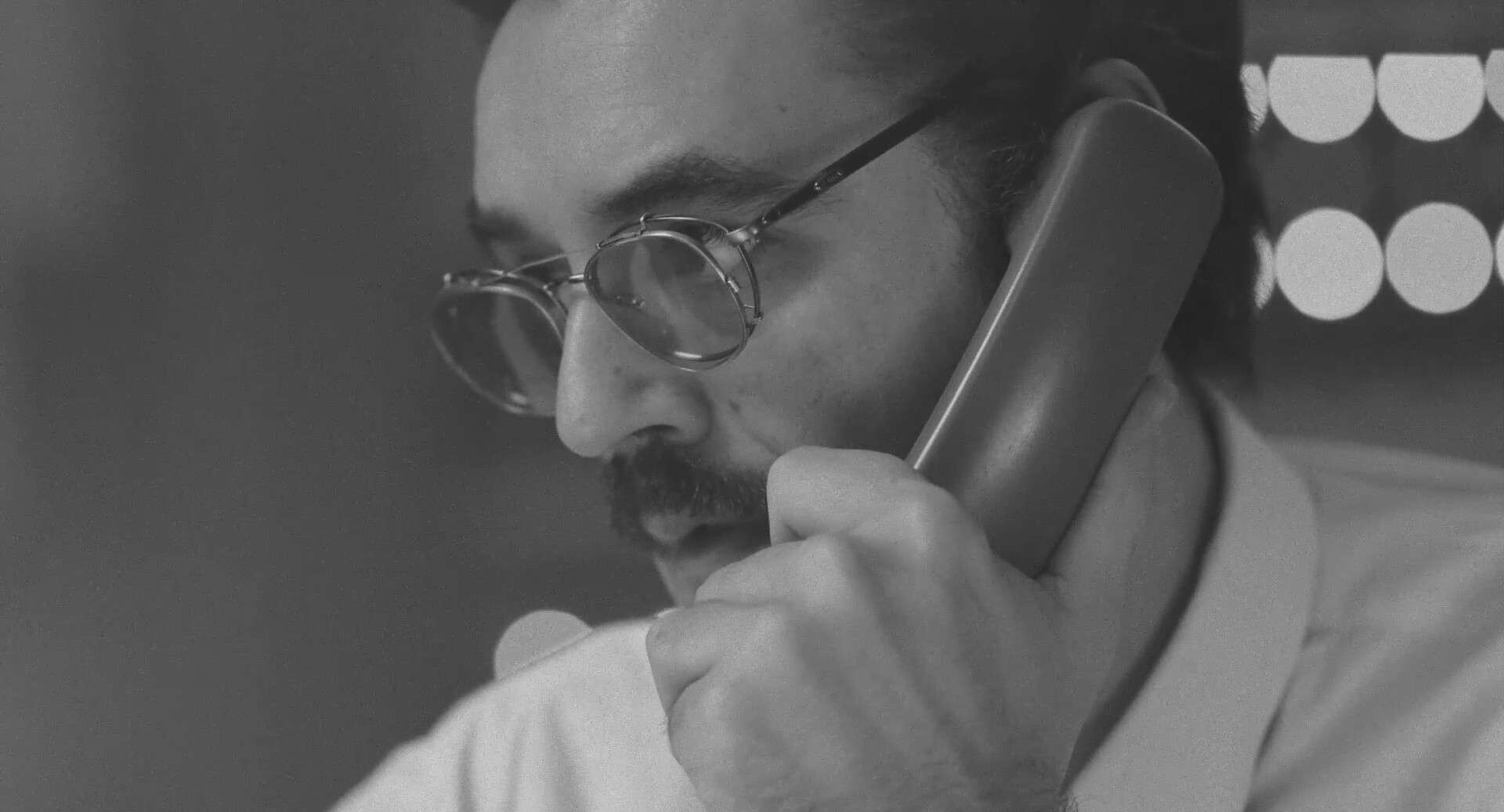
At what festivals have you had success? Has the film already premiered? If so, where?
So far, our picture was selected for the TSIOLKOVSKI SPACE FEST 2024, one of largest space and sci-fi movie festivals in Eastern Europe. It hasn't premiered yet but we initially expect to have a limited run in the UK through BFI and in Romania, the country of origin.
What motivated you to become a filmmaker?
I became a film-maker out of necessity. I started in acting but I wasn't going to wait for the right script to come into my hands; so I decided that I will make the movies I want to watch. I guess
a fascination with movies was always intrinsically rooted deep inside- otherwise I would have done something else. What movies offer you is immortality. Your work is put out there and if it's
good it will stand the test of time.
Which movies are your favorites? And why?
For me, personally, there is the work of John Cassavetes then everyone else. I don't think there was any other film-maker who loved people as much as John did. His movies burst with both candor and energy, insanity and tenderness. They were also made on the credit plan, literally financed out of his pockets. "A Woman Under the Influence" is a wonderful film, but for me "Love Streams" and " Opening Night" are his best works.
What topics do you like to deal with in your work?
I'm interested in only two things: love and energy. Some will argue they're one and the same and I can go with that. But how do love and energy transcribe in movies? Through myriad of forms. I will even go and make a bold statement that a movie like The Terminator is also about love and energy- not in the narrative but in the way the whole picture came to fruition.
What genre do you like to shoot and why?
I don't have a genre. I'm an actor first and foremost- so I guess I'm a chameleon at that. I like a good story in any format. I am interested in all formats. But I guess, if you would have to press me I must admit I have a weak spot for genre movies. It's a complicated discussion- but the gist of this appeal lies in the fact that genre films are closest to theatre. Science fiction, horror, thrillers- any good play has all these elements. All Shakespeare is "genre" theatre, so is Beckett, Camus, Maeterlinck.
What project would you like to shoot one day, what would it be about?
I would like to make a science-fiction film about the effects of communism in Romania. I actually have the script for that- it's tricky because it's costly. And I would also like to create a TV strand in the same tradition as BBC PLAY FOR TODAY, shooting great plays of past and present, adapted for today's audience.
What do you do if you're not thinking about a movie? What are your hobbies?
I go and do a theatre project. It's a break from movies and there is immense value in doing theatre. It's indispensable for me. Anything that there is of value has to be shared with people, in my eyes. I could say I like cooking but I would never cook a great meal just for myself. It has to be shared.
What projects do you plan to shoot in the future?
I'm actually in post-production with a TV Pilot I shot last summer. After THE UNCERTAINTY PRINCIPLE I wanted to do something where the stakes were lower so I filmed a historical comedy script where we could have fun on the set. We didn't think much of what was going to come out of it. All we wanted was a platform for actors to be silly- something so lacking in the current movie scape. Everyone takes themselves so seriously. Why? What is there to gain?
I also have several other feature-length scripts that are completed. It all depends where the next financing comes from. I'm also currently interested in developing a story about an actor shooting another actor by accident on stage.
Learn more about Sebastian and his projects:
THE UNCERTAINTY PRINCIPLE IMDB LINK: https://www.imdb.com/title/tt31595145/?ref_=nm_knf_t_1
OFFICIAL MOVIE WEBSITE: www.astrofilmcinema.com
Instagram: a_s_t_r_o_f_i_l_m
TIKTOK: astrofilmm
OFFICIAL MOVIE TRAILER: https://www.youtube.com/watch?v=wjVxMHpWTDQ&t=3s

